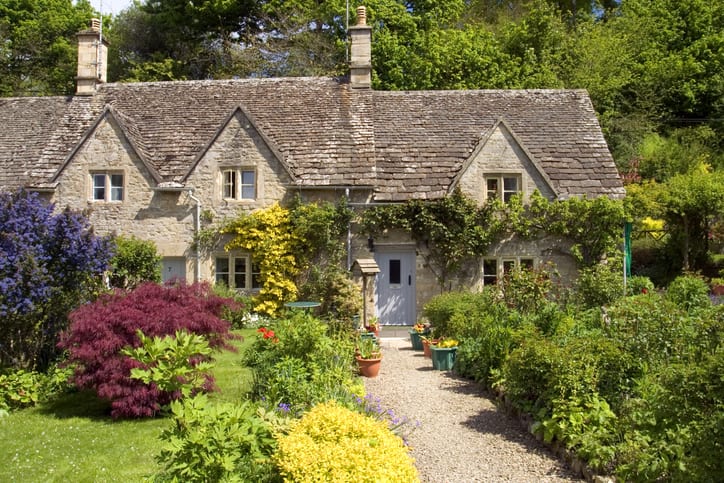
So, you have chosen your area, you have considered the type of place you wish to live, now comes the final stage – here’s our guide for finding your perfect home.
Familiarise yourself with the area
Getting to know the local area is especially important if you are remotely searching for a property online. If you can rule in or out properties due to their location it will make your search more straightforward. For example, if your children attending a particular school is important, then make sure you know the catchment area. If you can rule certain villages out, perhaps because they don’t have a pub (…), then again your search is narrowed.
Use the internet to support your search
Gone are the days of buying the local paper and peering into estate agents’ windows to find out the latest properties available, the internet has changed the way we look for houses forever, and it’s estimated that 95% of all property searches now start online. There are two key players to be aware of, Rightmove and Zoopla, with newcomer OnTheMarket increasing its market share. You can set up alerts which will immediately send you a notification of a new property which matches your criteria, this will mean you can move quickly and in a competitive market this can be essential. We came to view our house the day it went on the market (and the day before our daughter’s due date). Being well informed and ready to move quickly will increase your chance of a positive outcome.
Old house vs new house
The attraction of becoming the owner of a character property are plentiful and for many people sitting in front of an inglenook fireplace is the stuff of dreams. Older properties often command the best locations as they were the first to be built in a village, and as long as their appeal continues they are a secure investment. However you are likely to have far more maintenance issues than you would with a new home and practical consideration like limited storage, lack of en-suites and smaller rooms can be a challenge for family living.
Newer properties often deliver more space and meet our desire for an open living style, and you also have far more certainty in terms of future outlay. We found our budget would cover a smaller old property or a larger new property – with a growing family our decision was straightforward, and with an already stretched budget, there was great appeal in knowing that we shouldn’t have any surprise bills coming our way.
Depending on your skills, budget and of course inclination, it is often worth considering a house that requires work. If a property is in ‘move in’ condition then you will pay a premium. If you can see past the woodchip and avocado bathroom suite, and have the energy to take on improvements, you can potentially add value and put your own stamp on your home. This can also be done over time which is important if money is a constraint.
Neighbours
As the saying goes ‘you can choose your friends, but you can’t choose your neighbours.’ Unfortunately, unless you can glean some insider information it is tricky to determine what your future neighbours will be like. However, this goes for any home, and even if your next-door neighbours aren’t quite your cup of tea, you should be able to seek out other likeminded people in the local community. The pub is usually a good place to start.
Position
Practical considerations for the position of your new home are important as they may have financial and personal implications. If you have fallen in love with a barn conversion in the middle of a field, then be prepared to make a purchase of a suitable 4×4 in preparation for inclement weather. If your house is next to the village pub beer garden or the church with its hourly chiming bells, then noise could be an issue. A riverside position may sound wonderful, but consider if flooding is going to be a problem. The good news is that the most important issues should be covered in your house survey.
Listed buildings
Listed properties are unique and full of character, and there are over half a million listed buildings in England alone. If you are thinking about buying a listed building, then it is important to understand the obligations and responsibilities that come with it.
According to Historic England, the general principles are that the older a building is, and the fewer the surviving examples of its kind, the more likely it is to be listed. All buildings built before 1700 which survive in anything like their original condition are likely to be listed, as are most buildings built between 1700 and 1850. So, there is a high likelihood that any pre-Victorian property will be listed. To find out if a property is listed and at what level, search The List.
To become informed of the implications of listed status which including legal, financial, and practical aspects of ownership, visit the Historic England website which has lots of good advice and information.
Compromise
Usually, any house hunt starts with some non-negotiables that often dominate your search. Each family has it’s own list; it may be open plan living, it could be an office, it may be a games room. In rural areas the supply of houses will be limited and the key to success is compromise. You may have your heart set on a unique listed property full of character and charm but this may mean smaller rooms, limited storage and deep pockets. A south facing garden is fabulous, but a west facing garden which gets the sun in the afternoon and evening might be just as acceptable.
So be prepared to compromise, don’t rule anything out and view a range of properties so you can build up an idea of what you can purchase within your budget.
Taking on a conversion or grand design
It’s very inspiring to watch Grand designs and the glorious Escape to the Chateau – who could fail to be enthused with the awe inspiring outcomes. However, before you get out your pen and open your cheque book, consider if you have the time, skills, patience and budget to embark on such a journey. I imagine for those that have such attributes, there are few things that would offer more satisfaction than designing and building your perfect home. Having spent 6 months project managing the refurbishment of a 1970s house with two toddlers in tow – the one thing all projects usually have in common is that builders are unreliable and costs go over budget.
To conclude
Whatever your budget and whatever the house you decide to buy, remember it’s people who make a home sweet x.
Read our other articles on choosing your area, and Market town, village… where’s your perfect place?


